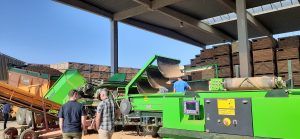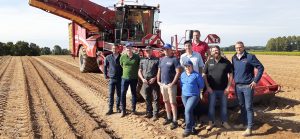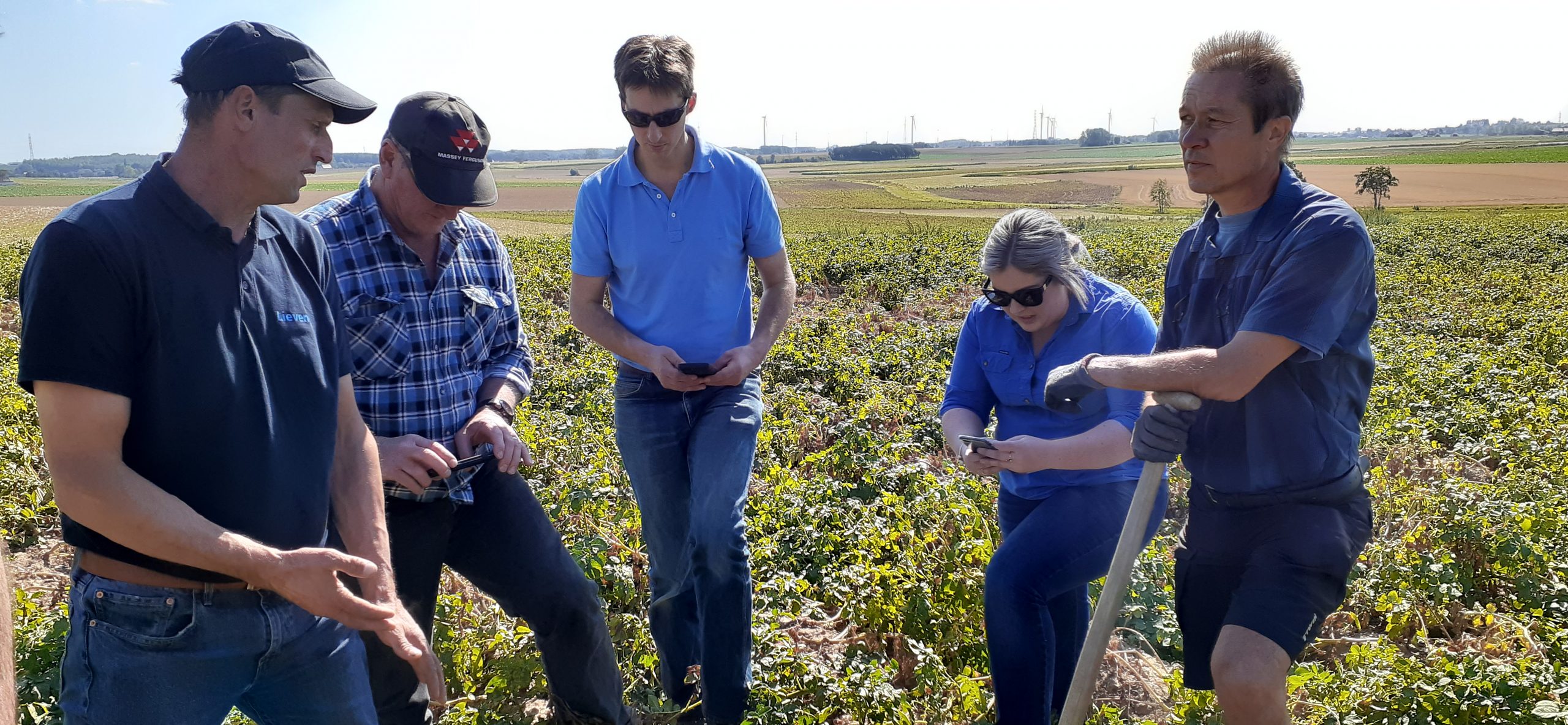Aussie growers and processors get a taste of the European potato industry
In September 2019, a group of Australian potato growers and processors embarked on a six-day potato study tour, where they attended a major European potato industry event, as well as visiting growing operations, research organisations and agribusinesses in Belgium. The October 2019 edition of Potatoes Australia shared some highlights from the tour.
PotatoEurope was the main event for five Australian potato industry members when they travelled to Belgium as part of the 2019 European Potato Conference Study Tour held from 1-7 September.
The six-day tour, led by AUSVEG, incorporated the two-day exhibition, which was held in Kain near Tournai. The group included representatives from all facets of the Australian potato industry.
Tour attendees included Matt Steendam from Durkin Produce, Western Australian seed grower Alan Parker, Zerella Fresh Farm Manager Phil Gorman and agronomists Olivia Ryan from McCain, and Angus Galloway from Simplot.
The European potato conference study tour (PT18002) is a strategic levy investment under the Hort Innovation Fresh Potato and Potato Processing Funds.
Grower insight
On the opening day of the tour, the group travelled south to Gembloux in the French speaking Walloon region, where it was joined by Daniel Ryckmans, an agronomist employed by the Walloon Potato Growers’ Association (Filliere Wallonne de le Pomme de Terre; FIWAP).
There, participants visited a seed potato cooperative, Condi Plants, which has seven grower members, produces around 200 hectares of seed potatoes, and shares a common storage and seed preparation facilities. Much of their seed is exported around the world and the growers were impressed with the infrastructure and machinery in use.
The group then met with experienced potato growers Lieven and Stefan Holvoet and were fortunate to receive a tour of the Holvoet brothers’ property. Participants gained an insight into the vast amount of high-quality machinery that is being used and the advanced concrete storage facilities Lieven and Stefan have established.
They saw the very large number of tiny (by Australian standards) potato paddocks spread throughout the area they farm. It was eye-opening to see the effects of the two-year drought that the majority of Europe has experienced, along with the impact that Colorado potato beetle, a pest not yet found in Australia, has had on their crop.

Research focus
Following a busy first day, the group travelled north to Kruishoutem in the Dutch speaking Flemish region. The first stop was a visit to Interprovinciaal Proefcentrum voor de Aardappelteelt vzw (PCA), which is an association for independent practical research and information on potato cultivation. In close collaboration with the potatoes research group of Inagro, the PCA offers a wide range of services and advice for growers and other potato industry stakeholders.
In their modern research facility, the group met with Dr Pieter Vanhaverbeke, a world expert on potato late blight. He presented on the late blight warning system, which uses weather data, and a broad range of data inputs to provide predictive models of risk that are individually tailored to each grower in the region. Over the many years that it has been in operation, the predictions have been refined to be highly accurate. They are used by growers to manage the risk of crop infection and to justify the use of preventive fungicides, which is regulated in the European Union.
The late blight pathogen Phytophthora infestans is a major problem in Europe for potato growers, which has many genotype populations, each characteried by various levels of aggressiveness and fungicide resistance. None of these exotic populations are yet present in Australia, so the group was very interested in the management approaches taken in Belgium and were impressed by the predictive services provided by PCA.
The rest of the day was spent at the Dewulf potato harvester factory in Roeselare, Belgium. The group viewed two and four row self-propelled harvesters in various stages of construction, along with a range of other powered and unpowered machinery. It provided the group with an excellent background to then see the finished product in action the next day.
Potato machinery in action
Days three and four were spent at PotatoEurope, which is an outdoor and covered event that takes place annually in one of the four main potato-growing countries across Europe in a four-year cycle.
After France, the Netherlands and Germany, it was Belgium’s turn this year, where it was held on a farm near Kain in south-east Belgium. The event brought together representatives from the entire potato supply chain to consult with experts in the field of cultivation, materials and potato processing.
In 2019, the event attracted 10,683 people from 40 countries involved in potato production, which is a significant increase from previous years. There were 225 exhibitors from 17 countries in attendance who were showcasing the latest potato products and services.
An important and appealing component of PotatoEurope – that differentiates it from other events – is the practical demonstration of machinery. This year, there were 14 machines harvesting 20 hectares of potatoes, pulling up a healthy 50 tonnes/ha from the site. Each member of the tour was able to focus their time and attention on what they were most interested in.
Feedback was highly positive, and participants wished that there was something similarly potato-focused back home in Australia.
Harvesting knowledge
Rounding out the tour was a meeting with Grimme representatives Paul Menz and Alex Stärk, who travelled with participants to two potato growing operations. As a result, the group was able to see Varitron 470 harvesters in action.
The first stop was a family farm of 330 hectares in Gosselies, where they grow and process fresh market and French fry potatoes, some of which are sold and delivered directly to restaurants throughout the region.
The second site was a contacting operation run by two bothers and a son in Berloz. The visitors were impressed by the scale of the operation, which was harvesting approximately 1,200 hectares of potatoes while relying on only small number of staff.
In each location, the group was treated to fantastic grower hospitality where all aspects of the business were freely discussed. Participants appreciated being able to discuss the similarities and difference of growing potatoes on opposite sides of the world with their peers. Upon their return, participants are encouraged to share knowledge and networks gained with the wider Australian potato industry.

Acknowledgements
AUSVEG would like to thank those who gave their valuable time to meet with the delegation.
This project has been funded by Hort Innovation using the fresh potato and potato processing research and development levies, contributions from Australian potato growing businesses and contributions from the Australian Government.
Project Number: PT18002

